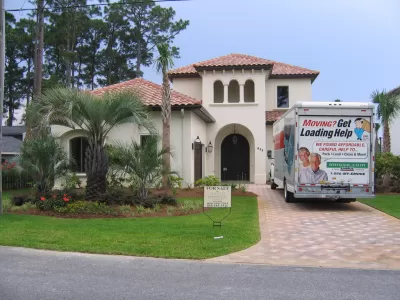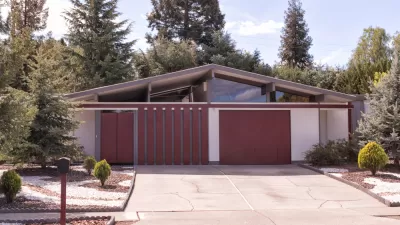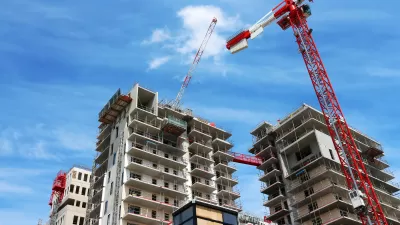A recession is coming, though we don't know how big it will be or how long it will last. Compared to the Great Recession, the housing market could potentially help, rather than hurt, economic recovery, according to the analysis shared here.

"Although it’s too soon to say how far the economy will fall and when the slide will end, the housing industry may be poised to help lead the recovery, when it occurs, unlike it was after the Great Recession of the late 2000s," writes Daniel McCue.
Interest rates allow the housing market to lead the country out of, according to the article, as has been the case in past downturns.
Simply put, this is because recessions lead to a decline in interest rates that lowers borrowing costs for both homebuyers and builders, which makes homebuying more attractive and spurs homebuilding and the many related durable consumer goods industries that drive GDP growth. The strong connection has been documented by economists such as Edward Leamer, whose 2007 working paper goes so far as to carry the title, “Housing Is the Business Cycle.”
After detailing the methodology of studies that quantify the connection between the housing market and economic recovery, McCue also documents the differences between the current economic downturn of the coronavirus and the circumstances of the Great Recession. According to McCue, "one key difference between the Great Recession and today is the lack of a substantial overhang of distressed and foreclosed properties, which after the last recession needed to be absorbed before housing construction could be a driver of recovery."
McCue also notes that the suspension of housing construction projects, as mandated in many parts of the country during the worst of the coronavirus outbreak, will contribute to housing shortages in an already tight housing market—in another fundamental difference from the previous recession.
While McCue focuses on the redemptive potential of a tight housing market, others, like a team of researchers at the Urban Institute, have expressed concern that the tight housing market will only exacerbate the pre-existing inequalities in both the housing market and the larger economy.
FULL STORY: HOUSING COULD HELP LEAD THE POST-COVID ECONOMIC RECOVERY

Trump Administration Could Effectively End Housing Voucher Program
Federal officials are eyeing major cuts to the Section 8 program that helps millions of low-income households pay rent.

Planetizen Federal Action Tracker
A weekly monitor of how Trump’s orders and actions are impacting planners and planning in America.

Ken Jennings Launches Transit Web Series
The Jeopardy champ wants you to ride public transit.

Washington Legislature Passes Rent Increase Cap
A bill that caps rent increases at 7 percent plus inflation is headed to the governor’s desk.

From Planning to Action: How LA County Is Rethinking Climate Resilience
Chief Sustainability Officer Rita Kampalath outlines the County’s shift from planning to implementation in its climate resilience efforts, emphasizing cross-departmental coordination, updated recovery strategies, and the need for flexible funding.

New Mexico Aging Department Commits to Helping Seniors Age ‘In Place’ and ‘Autonomously’ in New Draft Plan
As New Mexico’s population of seniors continues to grow, the state’s aging department is proposing expanded initiatives to help seniors maintain their autonomy while also supporting family caregivers.
Urban Design for Planners 1: Software Tools
This six-course series explores essential urban design concepts using open source software and equips planners with the tools they need to participate fully in the urban design process.
Planning for Universal Design
Learn the tools for implementing Universal Design in planning regulations.
Heyer Gruel & Associates PA
Ada County Highway District
Institute for Housing and Urban Development Studies (IHS)
City of Grandview
Harvard GSD Executive Education
Toledo-Lucas County Plan Commissions
Salt Lake City
NYU Wagner Graduate School of Public Service





























